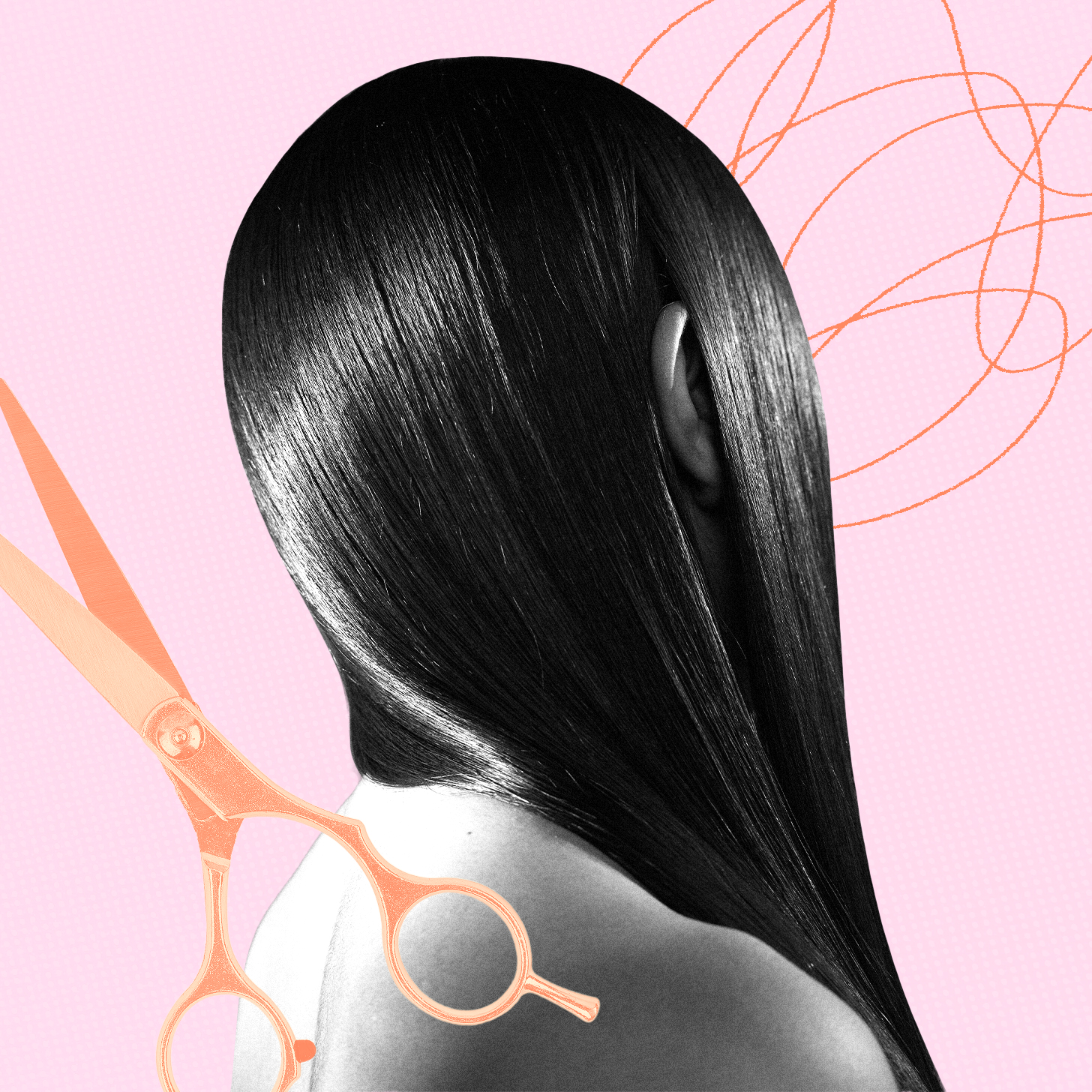
- POPSUGAR Australia
- Beauty
- Does Hair Hold Trauma? The Answer Is Complicated
Does Hair Hold Trauma? The Answer Is Complicated

As someone who finds herself doom scrolling on social media late at night in bed quite a lot, I often come across weird trends that most of my friends and colleagues haven’t heard of yet (and truth be told, sometimes don’t want to hear of – I’m looking at you hemorrhoid cream for undereye bags). The latest: the idea that hair holds memories – and it’s hitting a little close too close to home.
Overall, the trend on TikTok features lighthearted videos of people showing off their long hair with captions like, “hair holds memories,” followed by a transformation of themselves with dramatically shorter hair. However, there are quite a few videos that skew much darker.
In the more somber videos, people discuss whether or not hair holds trauma, not just memories. Users on app have been commenting that if you have shoulder-length hair, you’re actually carrying around three to six years worth of events – both good and bad. That means every time you got sick, had an argument with a friend or a loved one, and went through a heartbreak, it’s sitting with you 24/7. In one video, a woman who shaved her head entirely had to stop halfway through because she was shaking too much.
I recently went through a break up, and although it wasn’t my most traumatic to date, it’s definitely landed somewhere in the top five. I have obsessive compulsive disorder (OCD), and occasionally, my brain can get stuck in thought loops that are difficult to get out of. After seeing these videos, I found myself thinking about my own trauma and how it potentially affected my hair. I’m not exaggerating when I say my most recent breakup was bad, but was it shave-off-all-of-my-hair bad? (I really, really like my hair, if you couldn’t tell.) I wanted to see if there was any truth to the claims, so I reached out to experts and even someone who tried it, and the answer was, well . . . complicated.
Experts Featured in This Article
Jeff Yoo is a licensed marriage and family therapist at Moment of Clarity Mental Health Center.
Laci James is a licensed marriage and family therapist and Clinical Director at the Mental Health Center of San Diego.
Joanne Krieg Starkman is the founder of Innersense Organic Beauty.
Clinically speaking, your hair is just your hair. “Scientifically, there is no evidence to suggest that hair physically holds memories or trauma,” therapist Jeff Yoo tells PS. Therapist Laci James agrees, adding, “We know that trauma is heavily stored in our bodies, specifically the brain and the nervous system, [but] there is no research that says hair specifically holds on to memories or trauma.”
However, Yoo says that non-traditional spiritualists and treatment modalities claim that there is a connection between hair and emotions. In fact, the relationship could be quite literal. “The brain and the body are connected. What you eat or drink will have an impact on your skin, hair, and nail growth, your moods, or your ability to pass waste. Hair absorbs nutrients from what you put in your system.” In fact, it’s even known that increased stress can impact hair loss and hair color.
Still, if our hair isn’t holding onto painful memories, why does a big chop or drastic color change typically reflect an intense emotional shift? “It’s important that we remember causation and correlation are two different things,” James says. “People take control of what they can when they’re experiencing distress.” This often shows up in outward appearances, like a friend getting a new tattoo after a significant life change, a sibling opting for a new piercing after moving across the country, or, yes, someone getting a dramatic haircut after a traumatic event, like a breakup.
Content creator Kayla Kane decided to opt for a big hair change after an important life event, and for her, the results were well worth it. “I had just come out of a serious five-year relationship, which had left me questioning my own feelings and thoughts, as I had often prioritized my partner’s feelings over my own,” Kane says. “I realized I wasn’t fully myself anymore and felt the need for a dramatic change to symbolize my personal transformation.” Kane decided to get a bob haircut and posted about it online, which she says became a huge turning point for her. “The video of the haircut went viral, and I was soon known as the ‘breakup-bob girl.'”
Kane says her cut helped her regain control over her identity and reconnect with the woman she now confidently recognizes as herself. “The change was both empowering and liberating, marking the moment where I was finally ready to embrace this new phase of my life.”
“Post-traumatic growth refers to the changes we make in our lives after a traumatic experience,” James says. “Making shifts in outward appearance can be a healthy way to take back our power as individuals and express our autonomy after a traumatic event.”
Typically, I find myself making some type of a change after a breakup – whether it’s picking up a new habit or altering my appearance physically. “A hair change can go both ways” it can help or hinder the healing process,” Joanne Krieg Starkman, founder of Innersense Organic Beauty, says. “Because we can change hair so instantaneously, we think that we can quickly change our hair and immediately feel healed, but that’s not how it works. The change has to come from within, then you get the haircut.”
Renee Rodriguez is a staff writer and social producer for PS. She writes across all verticals, but her main areas of expertise focus on fashion and beauty content with an emphasis on reviews and editor experiments. She also produces social content for the PS TikTok and Instagram accounts.

